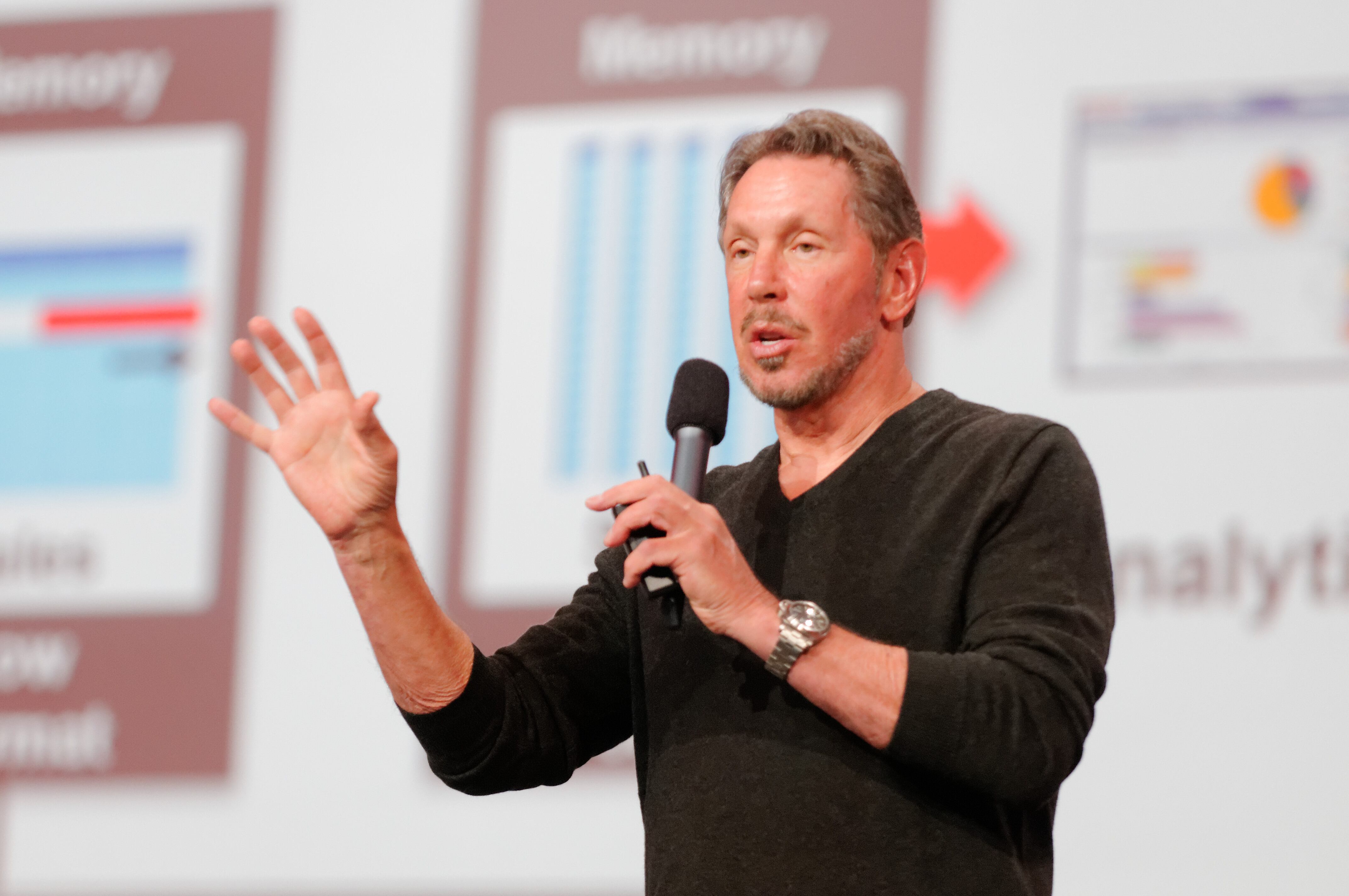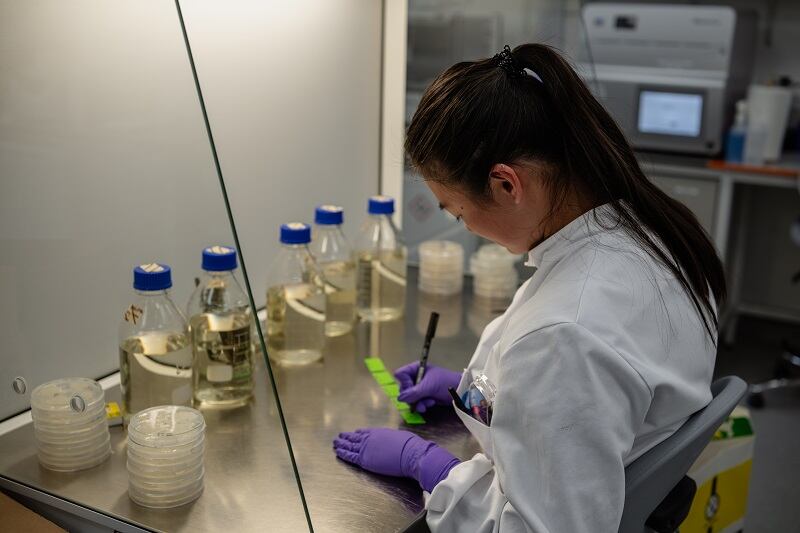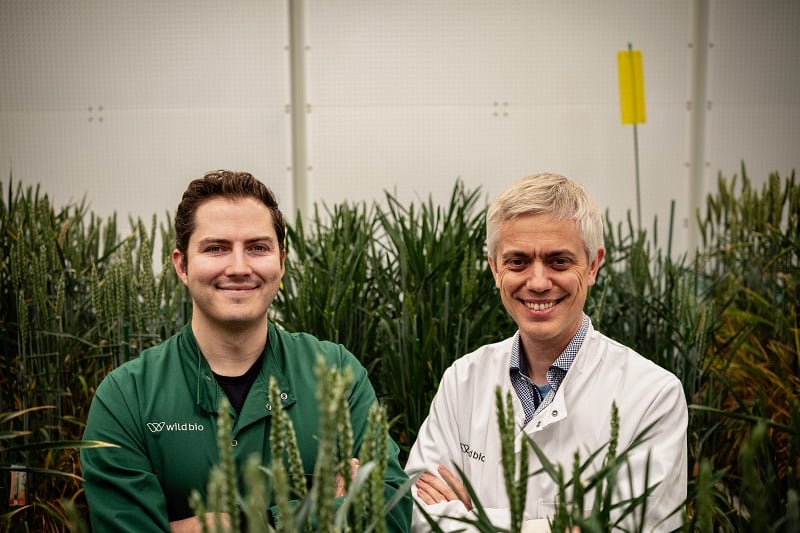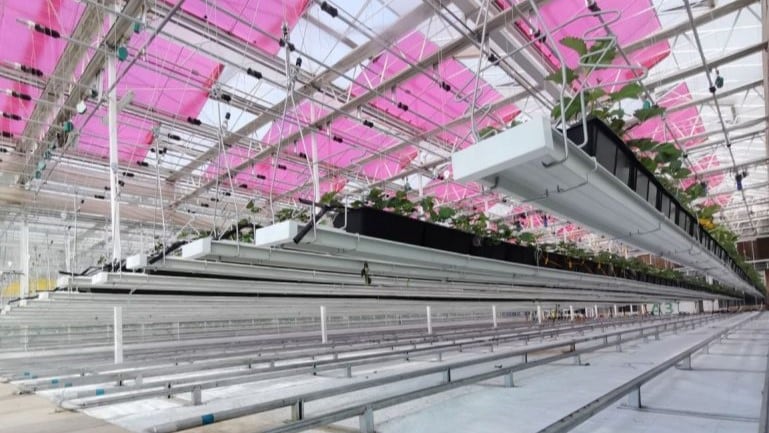Wild Bioscience has raised $60 million (£45m) in Series A funding to accelerate the development of its AI-driven precision breeding platform. The Oxford University spinout, co-founded by evolutionary biologists Dr. Ross Hendron and Prof. Steve Kelly, is using custom-built algorithms to identify and activate beneficial traits in crops by simulating how evolution might have taken a different path.
The company essentially is trying to “replay the tape of life” to see how crops like wheat could have evolved with better traits, Hendron told AgTechNavigator. The company can’t run fast evolution experiments in plants, he explained, so it simulates them using large, diverse datasets, most of which it generates itself.
Cracking the photosynthesis code
Wild Bio’s flagship breakthrough is in improving photosynthetic efficiency – a notoriously complex trait that has long eluded traditional breeding and biotech approaches. The company has built a proprietary dataset that maps hundreds of potential limitations in photosynthesis and links them to genetic and physiological data.
Field trials in the UK, Brazil, Argentina, and the US in the UK have so far seen double-digit improvements, Hendron said. “We’re still testing over larger areas and varieties. But we see when we’re improving photosynthesis, we do see a benefit in early vigour – so the plants grow faster in those early stages.”
From lab to field – and into the hands of seed companies
The company’s gene editing approach, typically using CRISPR, allows it to replicate beneficial traits found in wild species and introduce them into commercial crops. Wild Bio is currently focused on soybean, wheat, and maize – broad-acre crops where even small gains can have a major environmental and economic impact.
While photosynthesis is the most advanced trait in its pipeline, Wild Bio is also exploring drought resilience and a novel carbon removal programme that encourages plants to sequester carbon as inorganic matter underground.
The company has begun partnering with global seed companies, particularly row crop providers in North and South America, though no deals have been publicly announced yet. “They recognise this is a complimentary approach to what they’re doing and a unique way of going about this,” Hendron said.

Scaling the science
The $60 million Series A round, led by the Ellison Institute of Technology, will fund expanded R&D, more field trials, team growth, and commercialisation efforts. Hendron said the Ellison Institute’s long-term, strategic mindset was a key factor in choosing them as lead investor.
“This isn’t a SaaS model with a two-year turnaround,” he said. “We needed investors who understand the scientific risks and timelines.”
One of the biggest technical hurdles remains time. “You can’t compress a year-long field trial,” Hendron noted. The company is investing heavily in early-stage screening and high-throughput data collection to make better predictions before hitting the field.

A globally scalable solution
What makes Wild Bio’s platform especially compelling, Hendron argues, is its scalability. “There are billion farmers on the planet; they’ve all got seeds.” If it can load a solution into the seed, it doesn’t matter whether the farmer is in a high-tech cornfield in Iowa or a subsistence farm in rural Africa – it will simply works, requiring no infrastructure change or behaviour change. “The whole point is that the seed is going to perform better for you regardless of the farming system.”





